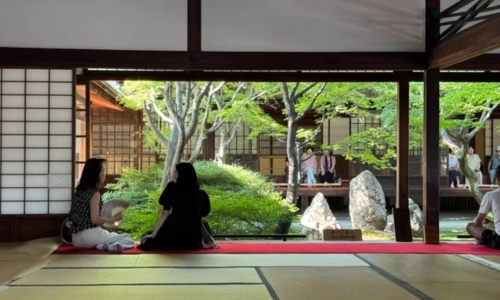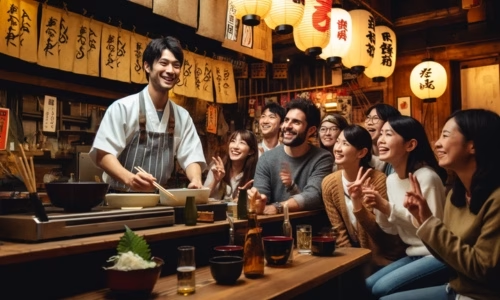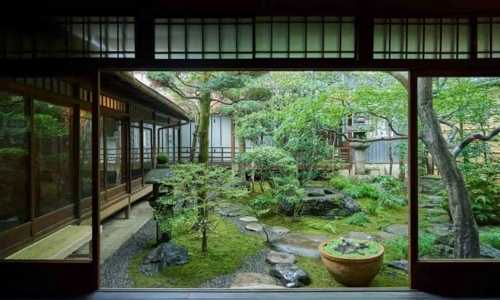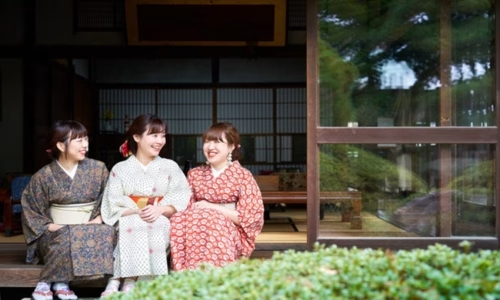Japan is globally admired for its spotless cities, quiet efficiency, organized systems, and enduring traditions. But beneath this polished surface is a rich and multifaceted society shaped by centuries of culture and collective values. To truly understand the nation, one must look beyond landmarks and rituals and focus on the people Japanese, how they think, how they work, how they live, and how they interact with each other and the world around them. It is through the lens of the people that Japan’s identity, resilience, and unique charm fully come into view.
Ancestral Influence and National Character
Most Japanese trace their ancestry to the Yamato ethnic group, which has long shaped the nation’s cultural foundation. Yet Japan is not a homogenous society. The Ainu in Hokkaido and the Ryukyuan people in Okinawa add depth to the cultural mosaic with their own languages, rituals, and beliefs. These communities, along with the Yamato majority, create a population that is diverse yet unified.
For centuries, Japan absorbed outside influences, especially from China and Korea, through diplomacy, trade, and migration. These contacts did not erase native customs. Instead, they blended with local traditions to form a distinct Japanese framework. This fusion appears in architecture, religion, cuisine, and the rhythms of daily life.
Tradition continues to shape modern choices. Ancestral worship, seasonal festivals, and long-standing rituals influence how families live, how students learn, and how people work. Everyday behavior, whether in public spaces or personal relationships, reflects principles refined over generations.
At the core lies the Japanese mindset. People value discipline, harmony, and subtle emotional expression. They prefer indirect communication, often relying on context and nonverbal cues. Courtesy, restraint, and consideration for others guide social interaction. These values preserve continuity while helping society adapt to modern challenges without losing its cultural essence.

Common Traits and Social Conduct
When looking at Japanese social behavior, a few traits appear again and again: respect, patience, and emotional restraint. In Tokyo’s busy streets or in quiet rural towns, public arguments and loud outbursts rarely happen. People line up in silence, speak in low voices, and move through shared spaces with care for others.
This calm and polite way of interacting highlights a core cultural value in Japan, group harmony comes before individual expression.
Most Japanese people speak softly and stay aware of those around them. They tend to avoid open conflict, relying instead on subtle hints and unspoken context to communicate. A key concept in daily life is kuuki wo yomu, which means “reading the air.” It describes the ability to sense moods and expectations without words.
This practice shows how strongly Japanese culture values empathy, discretion, and quiet understanding as tools to keep social balance.

Life in Japan’s Most Populated Cities
In Japan’s most populous cities Tokyo, Osaka, Yokohama, and Nagoya, urban life moves swiftly yet remains remarkably structured. Among them, Tokyo stands out as the epitome of organized dynamism: millions of commuters flow through the city daily, yet trains run punctually and streets stay clean and orderly. This sense of balance is a defining trait of the Japanese lifestyle in Tokyo and other major urban centers.
The modern Japanese lifestyle in these bustling cities emphasizes efficiency, minimalism, and practicality. Compact apartments are thoughtfully designed, bento lunches are neatly prepared, and every detail of daily living is fine-tuned to maximize limited space and time. Technology is deeply integrated, touchless payments, high-speed internet, and automated services are standard, yet it coexists seamlessly with cultural heritage. Even in the heart of Japan’s busiest metros, traditional values quietly persist, influencing how residents live, interact, and move through the day.
Japanese Work Culture
Japanese work life is globally recognized for discipline, strong work ethic, and formality. Employees are expected to show loyalty to their company, and many professionals stay with the same firm for most of their careers. Long working hours and frequent overtime have long been the norm. In recent years, however, younger workers have started to push back. They want more balance, flexibility, and modern employment structures.
Salary and Income Differences
The normal salary in Japan for full-time office workers ranges from ¥3.5 million to ¥4.5 million per year. Earnings vary by location, experience, and profession. Workers in Tokyo or high-demand sectors such as IT, finance, or engineering usually earn more. By contrast, entry-level roles and service jobs often pay less.
Income also shows a clear gap between urban and rural areas. Professionals in Tokyo or Osaka typically receive higher pay than workers in smaller towns or countryside regions. Salary by industry also differs widely. Hospitality, retail, and education tend to offer modest compensation, while technology, manufacturing, and finance provide stronger earnings.
Changing Views Among the Young
Japanese youth are reshaping long-held norms about work, family, and society. Many now value personal fulfillment and freedom over rigid career paths or social pressure. More young people choose to live alone, work remotely, or leave major cities for slower-paced towns.
Tradition Meets Modern Life
The modern Japanese lifestyle blends tradition with innovation. Convenience store (kombini) culture thrives beside age-old tea ceremonies. Digital tools exist alongside handwritten letters. Globalization influences younger generations, but tradition is not lost. Instead, it inspires new ways to experience and honor culture. In urban centers, old values now meet new aspirations, creating a dynamic way of life.
Interactions with Foreigners
A common question among newcomers is: How do Japanese treat foreigners? Generally, the answer is positive, Japanese hospitality is known for being polite, respectful, and thoughtful. Strangers are often willing to offer help when asked, and day-to-day interactions tend to be courteous. However, living in Japan as a foreigner can still involve some hurdles, especially when it comes to forming deeper friendships. Cultural nuances and language barriers sometimes make social integration slower than in Western countries.
In major cities like Tokyo, Osaka, or Kyoto, where there are more foreigners in Japan, the atmosphere is usually more open and internationally minded. Younger generations, in particular, are more likely to engage with non-Japanese and share interests. That said, navigating certain aspects of life, such as paperwork or finding housing, may still pose challenges for those unfamiliar with the system. While many locals are welcoming, patience and adaptability remain essential for building meaningful connections in Japanese society.

Tradition Meets Modernity
Japan is often celebrated for its robotics, advanced technology, and futuristic cities, yet the traditional Japanese lifestyle remains deeply rooted in daily life. Far from being symbolic, these customs are living traditions carried through seasonal festivals, family gatherings, and spiritual practices that honor both nature and ancestors.
From the New Year’s celebration of Oshōgatsu, where families enjoy osechi ryori (special holiday dishes), to Obon, a summer festival welcoming ancestral spirits, cultural values are transmitted across generations through rituals rather than words alone. Respect for elders, for example, goes beyond simple politeness, it shapes family relationships, workplace interactions, and even the education system.
In vibrant districts like Shibuya and Shinjuku, modest Shinto shrines sit quietly among neon lights and towering skyscrapers. These sacred spots are not historical remnants but living spaces where people still go to pray, seek blessings, or find calm in the midst of urban life. This coexistence of spiritual heritage and modern innovation highlights how Japan seamlessly balances the old with the new.
Tradition is also visible in everyday actions. Bowing during greetings, taking off shoes at home, and the art of carefully wrapping gifts all reflect Japan’s long-standing values of mindfulness and respect. Rural areas preserve even deeper ties to heritage, with community festivals, agricultural rituals, and multigenerational households still at the core of social life.
What makes Japan truly unique is not only its economic achievements or cutting-edge technology but its ability to preserve cultural identity while embracing change. This harmony between past and future ensures that tradition remains relevant in a rapidly modernizing world. For visitors and locals alike, Japanese traditions are more than cultural heritage, they are guiding principles that continue to shape society today.

Conclusion
Whether in rural towns or Japan’s largest cities, people balance innovation with tradition. Society values more than efficiency and politeness. It rests on heritage, collective well-being, and quiet respect for others.
To understand Japan, one must look past tourist sites and statistics. You need to notice social behavior, explore the work culture, and see the quiet strength of its people. Behind Japan’s global success stands a nation that evolves, adapts, and preserves its identity.






Leave a Reply